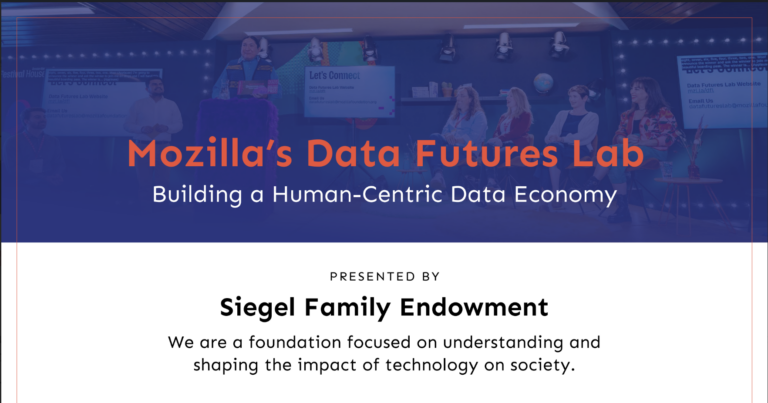
We can’t predict the future – and sometimes, it can feel hard to even keep pace. Technological advancement has widespread ramifications that continue to reveal themselves in new ways, and traditional research methods and sharing systems are ill-equipped to help as many people as possible stay ahead of the curve. As the world around us continues to change at a rate that can feel impossible to comprehend, traditional academic research models and processes keep valuable knowledge isolated and inaccessible to many.
Data & Society is a new kind of independent research organization that’s unbound by traditional obligations to academic research institutions and structures. They have a deliberate focus on the social and cultural issues that find their origins in technological advancement, and produce rigorous research that’s designed to be shared and discussed within and beyond their far-reaching network. The organization has a multifaceted approach, composed of an in-house research team, fellowship program, and regular public workshops, panels, and lectures, that’s well-positioned to incubate field-leading ideas and bring them to the public for consumption at an unprecedented pace.
Sharing information, findings, and resources that make sense of our rapidly changing world has never been more urgent. Data & Society employs a new approach that can easily and directly impact the growing field of leaders working to understand the social, cultural, and political impacts of data and rapid technological advancement.
This model doesn’t just produce impactful, field-influencing findings; it’s also an industry leader for openness, sharing, collaboration, and diversity that has the potential to reexamine some of the most significant aspects of independent academic research. By situating their work outside the walls of academia, and hosting regular events that target public participation, Data & Society is well-positioned to make the short- and long-term implications of their findings accessible and meaningful on a scale and timeline that traditional research typically currently cannot. It’s a case of meeting the subject of their research on its own level, and a remarkable strategy for keeping pace with a field that shows no signs of slowing any time soon.





